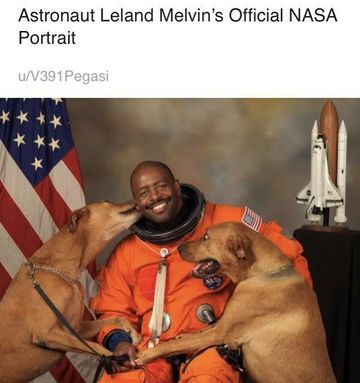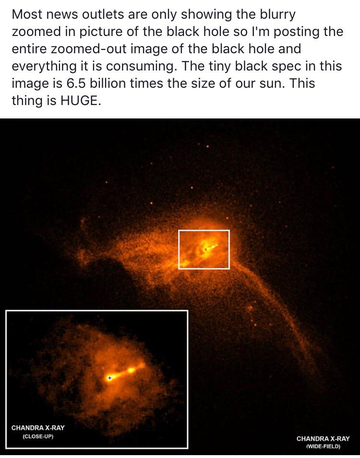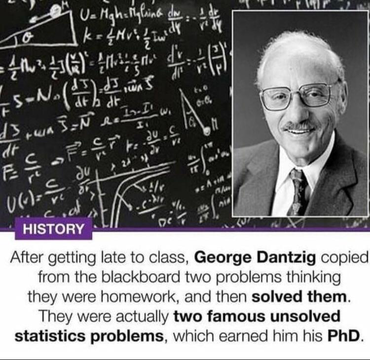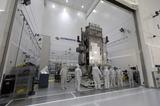Science stuff
News, curiosities, papers. Everything about science!
Forum
no forums yet
Posts (661) Newer postsMore posts
In a new study of childhood mortality rates between 1961 and 2010 in the United States and 19 economically similar countries, researchers report that while there's been overall improvement among all the countries, the U.S. has been slowest to improve.https://www.sciencedaily.com/releases/2018/01/180108191937.htm
The Genetic Information Nondiscrimination Act of 2008 expanded individuals' access to genetic information by forcing changes to the HIPAA Privacy Rule. These amendments gave Americans a civil right to obtain copies of their own genetic test results stored at HIPAA-regulated laboratories. Researchers describe how civil rights and safety concerns collided after these changes and offers strategies to reconcile the two.https://www.sciencedaily.com/releases/2018/01/180104131621.htm
Researchers have shed new light on a fundamental question in ecology, by improving a popular proposed scenario for diversity known as 'Kill the Winner.' Scientists approached the diversity paradox from the perspective of non-equilibrium statistical mechanics.https://www.sciencedaily.com/releases/2018/01/180102153218.htm
The most common type of tumor found in the kidney is generally quite small (less than 1.5 in). These tumors are usually found by accident when CAT scans are performed for other reasons and the serendipitous finding poses a problem for doctors.https://www.sciencedaily.com/releases/2018/01/180102170011.htm
For patients with mild cognitive impairment, don't be surprised if your health care provider prescribes exercise rather than medication. A new guideline for medical practitioners says they should recommend twice-weekly exercise to people with mild cognitive impairment to improve memory and thinking.https://www.sciencedaily.com/releases/2017/12/171228145026.htm
Through gene therapy, researchers engineered blood-forming stem cells (hematopoietic stem/progenitor cells, or HSPCs) to carry chimeric antigen receptor (CAR) genes to make cells that can detect and destroy HIV-infected cells. These engineered cells persisted for more than two years.https://www.sciencedaily.com/releases/2017/12/171228145216.htm
Ophthalmologists' use of electronic health records (EHR) systems for storing and accessing patients' medical histories more than doubled between 2006 and 2016, while their perceptions of financial and clinical productivity following EHR implementation declined, a study shows.https://www.sciencedaily.com/releases/2017/12/171228170640.htm
Forty percent of the world's 7.6 billion people live in coastal cities and towns. A team of marine biologists just released 25 years of data about the health of Caribbean coasts. The study provides new insights into the influence of both local and global stressors in the basin, and some hope that the observed changes can be reversed by local environmental management.https://www.sciencedaily.com/releases/2017/12/171228170643.htm
Male students tend to do better on high-stakes tests in biology courses, but it's not because they are better students. Gaps in performance change based on the stakes of the test. A new study confirms this, finding that performance gaps between male and female students increased or decreased based on whether instructors emphasized or de-emphasized the value of exams.https://www.sciencedaily.com/releases/2017/12/171228170646.htm
Exactly 200 years after the discovery of the trace element selenium, researchers have shown for the first time why this chemical element is indispensable for mammalian life. As integral part of the enzyme GPX4, selenium protects a subset of neurons from cell death during postnatal development.https://www.sciencedaily.com/releases/2017/12/171229095132.htm
Pollen tube guidance towards the ovule is an important step for fertilization in flowering plants. In order for this to happen, a pollen tube attractant peptide LURE guides the pollen tube precisely to the ovule. Plant biologists have succeeded in analyzing for the first time, the crystal structure of LURE bound to its receptor protein PRK6.https://www.sciencedaily.com/releases/2017/12/171229095136.htm
The incurable Ebola virus has long been feared due to its high mortality rate and danger of infection. Now researchers have succeeded in inhibiting the virus in cell cultures. The researchers hope to be able to continue doing animal testing and developing an actual drug.https://www.sciencedaily.com/releases/2017/12/171229095139.htm
According to the Centers for Disease Control and Prevention, approximately 12,000 women in the United States are diagnosed with cervical cancer each year. One of the most common treatments for cervical cancer is radiation. While radiation therapy destroys cancer cells, it also destroys nearby healthy cells. Researchers studied in vitro human cancer cells to show that combining blueberry extract with radiation can increase the treatment's effectiveness.https://www.sciencedaily.com/releases/2017/12/171229135254.htm
Being able to identify microbes in real time aboard the International Space Station, without having to send them back to Earth for identification first, would be revolutionary for the world of microbiology and space exploration. The Genes in Space-3 team turned that possibility into a reality this year, when it completed the first-ever sample-to-sequence process entirely aboard the space station.https://www.sciencedaily.com/releases/2017/12/171229135307.htm
A survey of residents near two major national parks in Panama indicates that jaguars deserve increased protection. But because most residents still support road-building in the parks, the survey team recommends further education to emphasize the connection between healthy ecosystems and jaguar survival.https://www.sciencedaily.com/releases/2017/12/171228170649.htm
Nucleic acid sequencing methods, which determine the order of nucleotides in DNA, are rapidly progressing. These processes yield large quantities of sequence data that helps researchers understand organism function. Sequencing also benefits epidemiological studies, such as the identification, diagnosis, and treatment of genetic and/or contagious diseases. Researchers have now developed an inductive algorithm to study nucleotide frequencies using a multi-strain SIR model.https://www.sciencedaily.com/releases/2017/12/171228170652.htm
A neurosurgical team has successfully performed what is believed to be a first-of-its-kind brain surgery on a Northern fur seal named Ziggy Star in an attempt to address her worsening neurologic condition. Ziggy, an adult female, is recovering well at her permanent home at Mystic Aquarium in Mystic, Conn.https://www.sciencedaily.com/releases/2017/12/171228100922.htm








